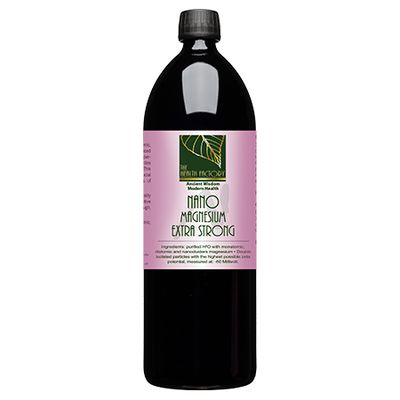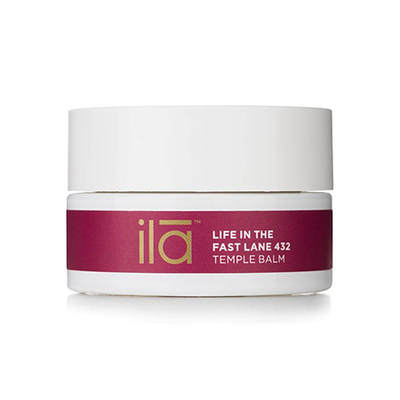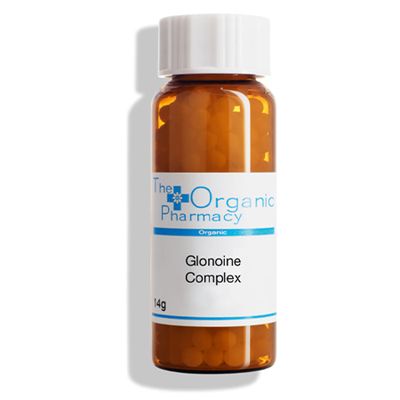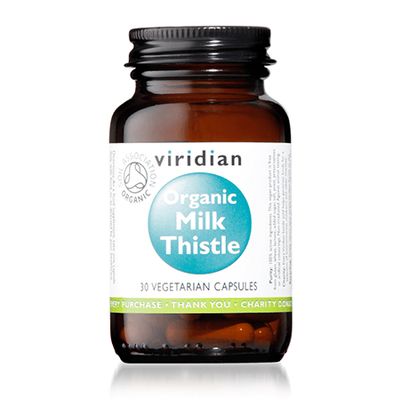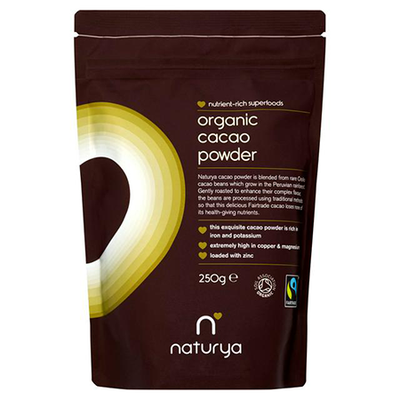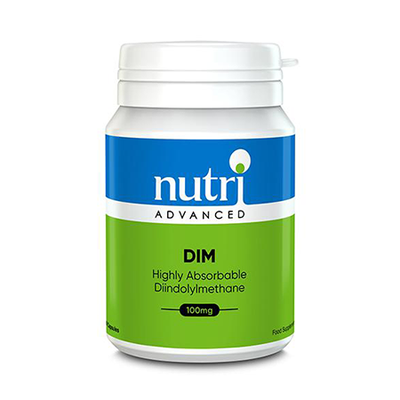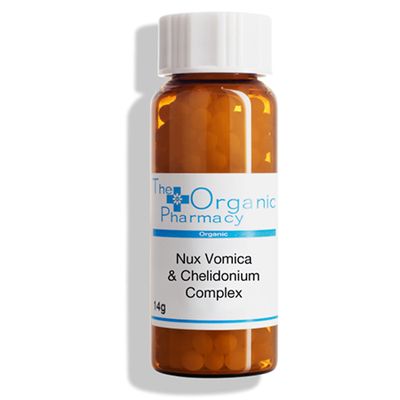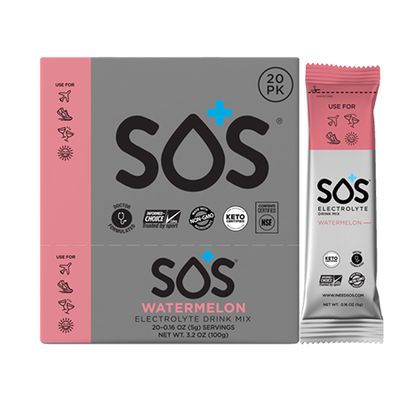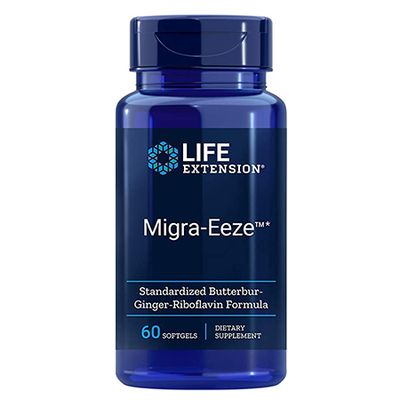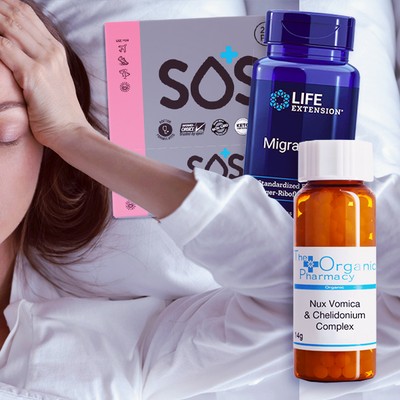
13 Of The Best Alternative Headache Remedies
Increase Your Electrolytes
“During the warmer months replenishing your salt and electrolyte intake is really important in order to avoid headaches due to poor hydration and sodium depletion. Potassium and magnesium, both electrolytes, are safe, natural minerals that have been proven to aid in headache relief. Take as an oral supplement to combat headaches. A few drops of aromatherapy-grade lavender and chamomile essential oil in your shower or bath before bed will also naturally relieve headaches and painful migraines.” – Natasha Garbawi, founder of SUN.DAY London
Try Homeopathy
“Headaches are notoriously difficult to treat, specifically migraines. I’ve had brilliant results with Glonoine Complex, a specific homeopathic complex. It contains Belladonna for pulsating headaches, Glonoine (for when it feels like your head will burst), Gelsemium (for a heavy head) along with several other homeopathic remedies. The powerful combination of these homeopathic remedies treats acute migraines and reduces their reoccurrence. Plus, homeopathy is safe for children and pregnant women, when options tend to be limited. Homeopathy is a safe, effective and gentle form of medicine.” – Margo Marrone, founder of The Organic Pharmacy
Support Your Liver
“The liver is responsible for many functions including cleansing our blood, digesting our food, producing energy, and metabolising hormones. If any of these functions are under performing due to poor diet and lifestyle, a headache could develop. You can support your liver with food and herbs like garlic, onions, leafy greens, cruciferous vegetables (Brussels sprouts, cabbage, kale, broccoli, watercress), dandelion root, artichoke leaf, burdock root, milk thistle and extra B vitamins. Extra protein will also help to support the liver. If you have a headache, try eating a protein-rich meal or snack and you may find this will alleviate the pain. A well-used naturopathic remedy is to undergo a gentle liver and gut-cleansing programme.” – Henrietta Norton, nutritional therapist and founder of Wild Nutrition
Take An Ayurvedic Approach
“In many cases, a cooling compress on the forehead with alleviate the pain associated with a headache, while stress-related headaches can be tackled by soaking your feet in hot water for 20 minutes. You can also try applying sandalwood paste or dry ginger powder mixed with water on the forehead, or a herbal steam inhalation. If all else fails, breathing practices and meditation are also effective ways of tackling stress-related headaches.” – Dr Manoj Kutteri, director of wellness at Atmantan Wellness Resort, India
Consider A Herbal Remedy
“There are lots of herbal remedies and supplements that can help with headaches. For example, 50-150mg per day of butterbur, a perennial shrub native to Germany with anti-inflammatory effects may reduce headache symptoms; while the same amount of feverfew can also help. If you are prone to migraines, consider taking 100mg of Coenzyme Q10 daily, which may reduce migraine frequency, severity and length. Studies suggest magnesium could also help with migraine severity – try taking 600mg per day.” – Dr Ursula Levine, GP at Lanserhof At The Arts Club
Up Your Intake Of Specific Nutrients
“Headaches can result from a deficiency in certain nutrients, most commonly magnesium, vitamin B6 and folate (also known as vitamin B9). Magnesium and vitamin B6 support the production of the neurotransmitter serotonin, blood sugar regulation and the efficient metabolism of oestrogen (excess or deficiency of which can lead to headaches). Similarly, folate and magnesium influence blood circulation by contributing to vasoconstriction, which can generate pressure headaches. You can boost your dietary intake of these nutrients by eating more green leafy vegetables, legumes, nuts, seeds and wholegrains.” – Henrietta
Be Mindful of Blood Sugar
“When you eat high sugar foods, or go too long without eating, your body can swing into high or low blood sugar, which can cause headaches. Poor blood sugar control will also impact other hormones such as adrenaline and cortisol, which will increase your susceptibility to head pain. The solution is to eat protein-rich meals with plenty of vegetables and healthy fats. Avoid or minimise all refined, processed foods and ingredients you do not recognise. Better still, stick to foods that don’t need a lengthy ingredients label at all. Focus on real food that is as natural and unprocessed as possible.” – Henrietta
Use Aromatherapy
“If you have a headache, try running a warm – but not hot – bath with juniper and lemongrass salts, both of which are very cleansing. I would also recommend applying ila’s Life in the Fast Lane Balm, £13, over the liver area with a hot pack over the front and a cold pack on your back; lie down, cover your eyes and listen to some healing music for around 20 mins, then make a herbal tea with liquorice root, lemon balm and chamomile, which all soothe the gall bladder meridian – imbalance of which can often be the cause of a nasty headache. When applied to the temples, the balm is also the perfect antidote to stress headaches thanks to vetivert, which melts irritability and soothes mental and physical exhaustion; petitgrain, which lifts the mood; and cedarwood, which is grounding and rejuvenates the body’s energy system.” – Denise Leicester, founder of ila
Have A Consultation
“As homeopaths, we ask a lot of questions about your headache – we want to know its location, whether you’re thirsty or whether you’re chilly, warm or nauseous. All this information helps us choose a remedy. A remedy like Nux Vomica is good for hangover headaches, or while Pulsatilla is good if you find they come on in a stuffy room; Sulphur if they come on mid-morning, or Glonoinum if they are triggered by sunshine.” – Caroline Gaskin, leading UK homeopath
Think About Your Posture
“For many, not enough movement can trigger a headache, particularly in the mid spine as we sit at a laptop for hours. This causes tightness in the lower back and strain in the neck and shoulder muscles. Pilates exercises are one of the best ways to mobilise the mid spine. We’re not efficiently evolved to sit all day in chairs so try adjusting the chair height so that your knees are below hips and your hip flexors are more open – that can help.” – Caroline
Give Your Hormones Some TLC
“Headaches can be caused by unbalanced oestrogen levels. To encourage the production of good oestrogens while at the same time reducing levels of bad oestrogen (from pesticides, chemicals and plastics), consider taking black cohosh and dong quai – drink as tea or take in a tincture. Vitex (agnus castus) is another useful herb for hormonal migraines, while DIM can support healthy oestrogen levels.” – Amanda Griggs, nutritionist at The Khera-Griggs Cleanse Clinic at Urban Retreat
Get An Intolerance Test
“Food intolerances are commonly found in headache sufferers, so it’s worth getting tested for food intolerances. Tyramine is an amino acid that has been found to trigger migraines in some people – foods that are rich in tyramine and can be problematic include aged cheeses such as cheddar, stilton and parmesan; preservatives such as MSG; nitrite containing foods such as bacon, sausages and smoked foods; chocolate; red wine, beer, sherry and liquers; very cold drinks, and citrus, fermented soy foods, kimchee and pickled foods.” – Amanda
Try Herbal Teas
“While caffeine can provide pain relief to some (it has vasoconstrictive properties, meaning it prevents the dilation of blood vessels, potentially helping to prevent headaches), it can trigger or worsen headaches in others, so it’s preferable to avoid caffeine when experiencing a headache, especially if it strikes in the afternoon or late at night. Try a ginger or peppermint tea instead – or if you can’t give up your morning fix then a cup of cacao or a square of 80% dark chocolate is a great alternative.” – Charlene Gisele, primal health coach, tantric practitioner and yoga teacher
Shop our edit of products below...
*Features published by SheerLuxe are not intended to treat, diagnose, cure or prevent any disease. Always seek the advice of your GP or another qualified healthcare provider for any questions you have regarding a medical condition, and before undertaking any diet, exercise or other health-related programmes.
DISCLAIMER: We endeavour to always credit the correct original source of every image we use. If you think a credit may be incorrect, please contact us at info@sheerluxe.com.
